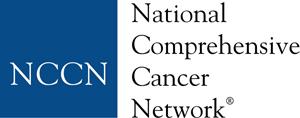Northwestern University
See the following -
Can Smartphone Apps and EHRs Transform Mental Health Care?
 Our relationship with technology is not unidirectional. We use it, and it changes us. But it cannot alter fundamental realities regardless of how hopeful Americans are or how much faith we have in it. More and better technology is not a substitute for adequate funding and coordinated planning, especially when we’re talking about the very significant funding issues around behavioral health. Sure, we can get excited about the newest app and the latest EHR functionality, but we must also maintain a focus on meeting the needs of the mental health professionals committed to keeping our fellow citizens from falling through the cracks. Even while there is no magic in technology, there is also no reason to believe we can’t fix a broken mental health system through hard work, empathy and thoughtful planning. Time and again, our faith in those principles has been rewarded.
Our relationship with technology is not unidirectional. We use it, and it changes us. But it cannot alter fundamental realities regardless of how hopeful Americans are or how much faith we have in it. More and better technology is not a substitute for adequate funding and coordinated planning, especially when we’re talking about the very significant funding issues around behavioral health. Sure, we can get excited about the newest app and the latest EHR functionality, but we must also maintain a focus on meeting the needs of the mental health professionals committed to keeping our fellow citizens from falling through the cracks. Even while there is no magic in technology, there is also no reason to believe we can’t fix a broken mental health system through hard work, empathy and thoughtful planning. Time and again, our faith in those principles has been rewarded.
- Login to post comments
Flexible 3-D Printed Scaffolds Could Mend Broken Bones
 When doctors repair broken bones or problematic joints, they often rely on ceramic or resin bone implants. But those have some downfalls: Because they’re rigid, they’re difficult for surgeons to customize to a patient’s body, and they are tricky to use in minimally invasive surgeries. The ideal would be a cheap material that would be bendable but would allow new bone to grow into its structure...
When doctors repair broken bones or problematic joints, they often rely on ceramic or resin bone implants. But those have some downfalls: Because they’re rigid, they’re difficult for surgeons to customize to a patient’s body, and they are tricky to use in minimally invasive surgeries. The ideal would be a cheap material that would be bendable but would allow new bone to grow into its structure...
- Login to post comments
Open Data Key To Tackling Neglected Tropical Diseases
 Open data access could promote collaborations among researchers in Africa and help in the fight against malaria, tuberculosis (TB) and neglected tropical diseases such as sleeping sickness, also called African trypanosomiasis. At a time when demand for open data in health and drug discovery is dominating the digital space, some researchers say the model could work for Africa and alleviate the sufferings of many from these diseases. Following the call on 23 April this year from the WHO for the disclosure of all results from clinical trials of new medicines, there is a push towards greater transparency.
Open data access could promote collaborations among researchers in Africa and help in the fight against malaria, tuberculosis (TB) and neglected tropical diseases such as sleeping sickness, also called African trypanosomiasis. At a time when demand for open data in health and drug discovery is dominating the digital space, some researchers say the model could work for Africa and alleviate the sufferings of many from these diseases. Following the call on 23 April this year from the WHO for the disclosure of all results from clinical trials of new medicines, there is a push towards greater transparency.
- Login to post comments
OSEHRA Releases Major Upgrade to popHealth with version 4.0
 OSEHRA is excited to announce the release of v4.0 of popHealth®. This is the first major release since v3.0 was transitioned to the OSEHRA popHealth community in 2014. The v4.0 release is a significant update to the original reference implementation that provides for basic Meaningful Use (MU) quality measure reporting. “This advanced version of popHealth is a great asset for the open source community,” said Dr. Seong K. Mun, President and CEO of OSEHRA. “Not only does it exhibit technical expertise and innovation, but even more significantly, it demonstrates the momentous success of our diverse, collaborative community.”
OSEHRA is excited to announce the release of v4.0 of popHealth®. This is the first major release since v3.0 was transitioned to the OSEHRA popHealth community in 2014. The v4.0 release is a significant update to the original reference implementation that provides for basic Meaningful Use (MU) quality measure reporting. “This advanced version of popHealth is a great asset for the open source community,” said Dr. Seong K. Mun, President and CEO of OSEHRA. “Not only does it exhibit technical expertise and innovation, but even more significantly, it demonstrates the momentous success of our diverse, collaborative community.”
- Login to post comments
OSEHRA Releases Upgrade to popHealth for the 2018 Clinical Quality Measure Reporting Criteria
 The Open Source Electronic Health Record Alliance (OSEHRA) announced today the release of the Version 5.1 of the popHealth® open-source clinical quality measure database and reporting engine. The new release maintains its 2015 Edition Health IT Module certification for Clinical Quality Measure (CQM) reporting criteria: (c)2-4, (d)1-3, (g)4, and (g)5 for the Calendar Year 2018 performance period. This release is the culmination of collaborative efforts by members of the OSEHRA popHealth Steering Work Group and the Developer Open Source Project Group. In particular, the Alabama State Medicaid committed significant development resources to achieve the attestation certification for the 2018 performance period.
The Open Source Electronic Health Record Alliance (OSEHRA) announced today the release of the Version 5.1 of the popHealth® open-source clinical quality measure database and reporting engine. The new release maintains its 2015 Edition Health IT Module certification for Clinical Quality Measure (CQM) reporting criteria: (c)2-4, (d)1-3, (g)4, and (g)5 for the Calendar Year 2018 performance period. This release is the culmination of collaborative efforts by members of the OSEHRA popHealth Steering Work Group and the Developer Open Source Project Group. In particular, the Alabama State Medicaid committed significant development resources to achieve the attestation certification for the 2018 performance period.
- Login to post comments
popHealth Community and OSEHRA Release Major Update to Open Source Clinical Quality Measure Database and Reporting Engine
 This is the second major release since popHealth version 3.0 was transitioned to the OSEHRA popHealth Community in 2014. It is the culmination of collaborative efforts by members of the OSEHRA popHealth Steering Work Group and the Developer Open Source Project Group. OSEHRA Organizational Member Zato Health co-funded the ONC certification and provided key technical support throughout the process, coordinating closely with the Connecticut Department of Social Services/ Medicaid. Group members from Northwestern University, eHealthConnecticut, Alabama State Medicaid, and Qualifacts all made significant code, expertise, and infrastructure contributions...
This is the second major release since popHealth version 3.0 was transitioned to the OSEHRA popHealth Community in 2014. It is the culmination of collaborative efforts by members of the OSEHRA popHealth Steering Work Group and the Developer Open Source Project Group. OSEHRA Organizational Member Zato Health co-funded the ONC certification and provided key technical support throughout the process, coordinating closely with the Connecticut Department of Social Services/ Medicaid. Group members from Northwestern University, eHealthConnecticut, Alabama State Medicaid, and Qualifacts all made significant code, expertise, and infrastructure contributions...
- Login to post comments
U.S. Ranks First in Health Care Spending, but Cancer Outcomes Do Not Reflect the Investment, Study Finds
 The U.S. health care system is characterized-on a global level-by its unsustainable health care spending, which does not necessarily correlate to better outcomes in patients with cancer. With $2.9 trillion spent on U.S. health care in 2013, the United States ranks first in health care spending among the world's leading economies. To investigate the implications of socioeconomic status (SES) and health expenditures on cancer outcomes and mortality, researchers at The University of Texas MD Anderson Cancer Center, led by Jad Chahoud, MD, conducted an ecological study at the state level for three distinct patient populations: breast cancer, colorectal cancer, and all-cancer populations..
The U.S. health care system is characterized-on a global level-by its unsustainable health care spending, which does not necessarily correlate to better outcomes in patients with cancer. With $2.9 trillion spent on U.S. health care in 2013, the United States ranks first in health care spending among the world's leading economies. To investigate the implications of socioeconomic status (SES) and health expenditures on cancer outcomes and mortality, researchers at The University of Texas MD Anderson Cancer Center, led by Jad Chahoud, MD, conducted an ecological study at the state level for three distinct patient populations: breast cancer, colorectal cancer, and all-cancer populations..
- Login to post comments